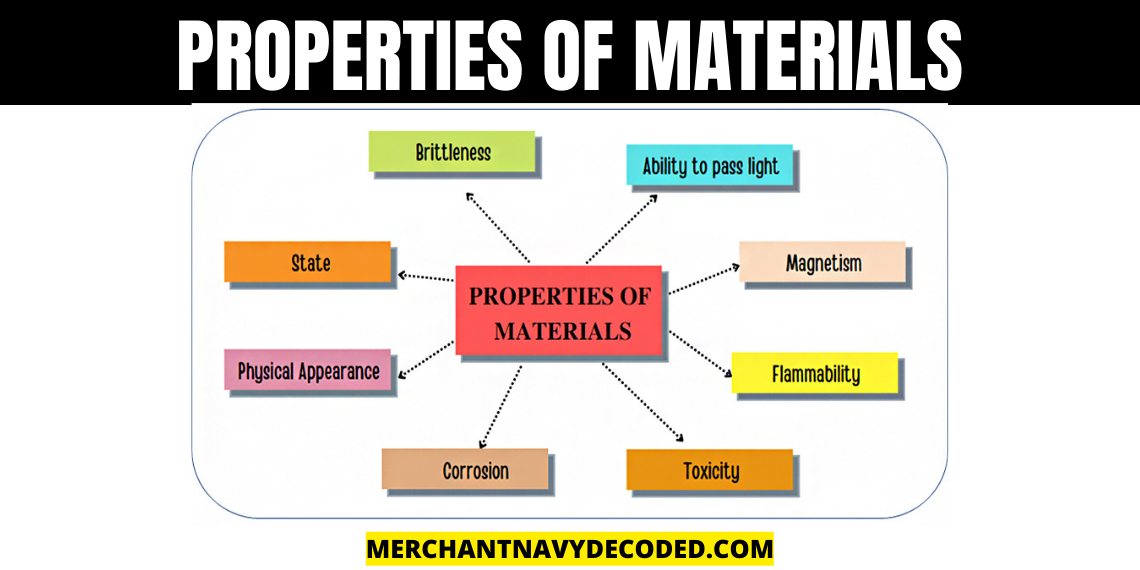Properties of Materials| Hardness| Ductility| Elasticity| Strength| Malleability| Plasticity| Brittleness
Ductility : It is the property of a material which enables it to be drawn into a wire form. The percentage elongation and contraction of area, as determined from a tensile test are a good practical measure of ductility.
The most ductile metal is Gold.

Brittleness : It is a property of material by virtue of which it breaks without undergoing any deformation on application of stress. A brittle material does not have a plastic region and can only deform slightly before it fractures. An example of a highly brittle material is glass.

Malleability : It is a property which is similar to ductility. The ability of a material to be beaten or rolled into plane sheet is called malleability.
Gold is the most malleable metal while nickel is the least malleable.

Elasticity : It is the measure of a material’s ability to return to the original dimensions following deformation by a load. An example of an elastic material is a rubber band.

Plasticity : If none of the strain in a stressed material disappears upon removal of the stress the material is said to be plastic.

Hardness : It is the measure of a material’s resistance to deformation of its surface due to impact, erosion or wear.

Strength : The greater the load which can be carried the stronger the metal.

Toughness : A material’s ability to sustain variable load conditions is a measure of the materials toughness or tenacity. It is the ability of a material to oppose rupture. A tough material does not break easily. Materials could be strong and yet brittle but a material which is tough has also strength and resilience.

Disclaimer :- The opinions expressed in this article belong solely to the author and may not necessarily reflect those of Merchant Navy Decoded. We cannot guarantee the accuracy of the information provided and disclaim any responsibility for it. Data and visuals used are sourced from publicly available information and may not be authenticated by any regulatory body. Reviews and comments appearing on our blogs represent the opinions of individuals and do not necessarily reflect the views of Merchant Navy Decoded. We are not responsible for any loss or damage resulting from reliance on these reviews or comments.
Reproduction, copying, sharing, or use of the article or images in any form is strictly prohibited without prior permission from both the author and Merchant Navy Decoded.


